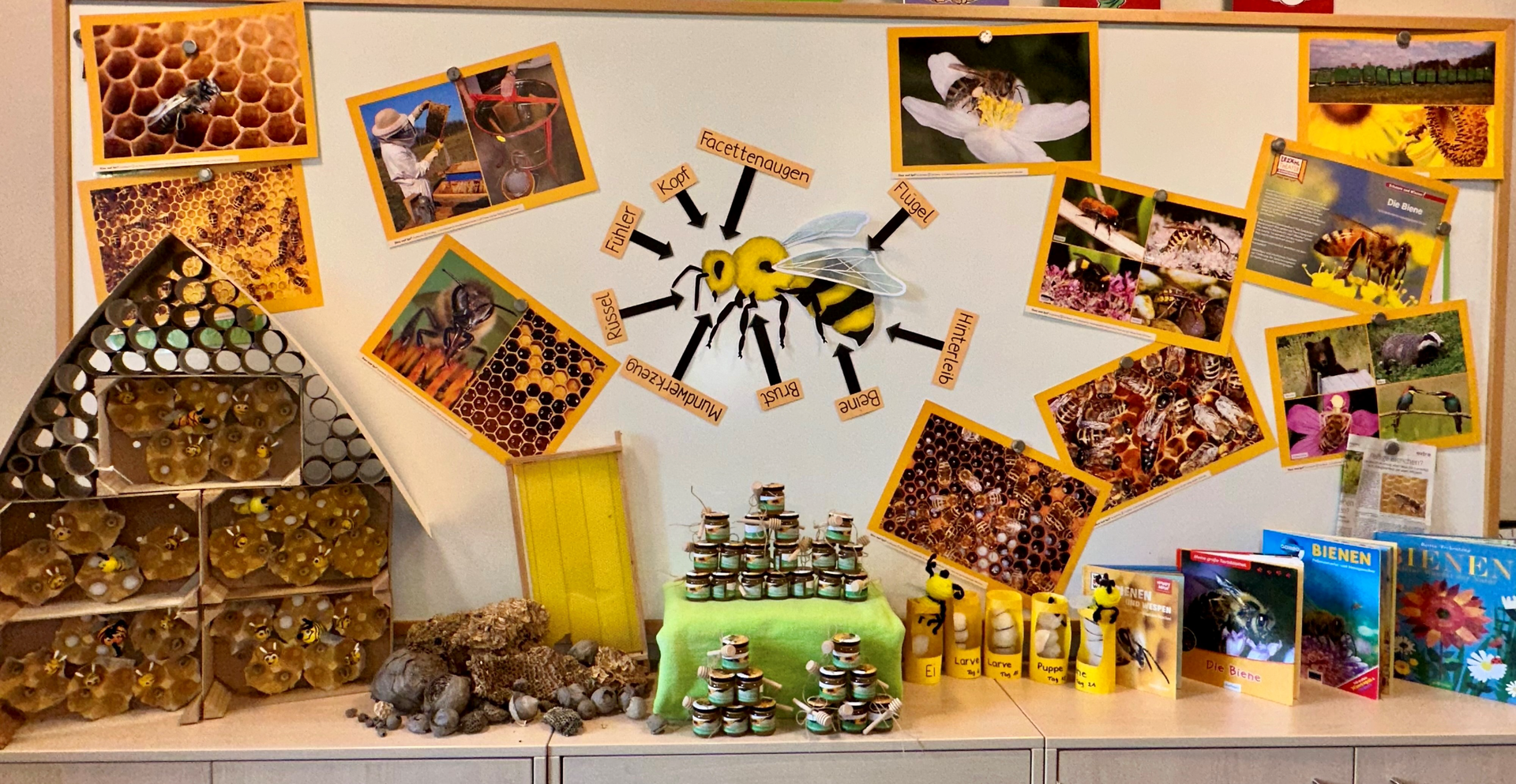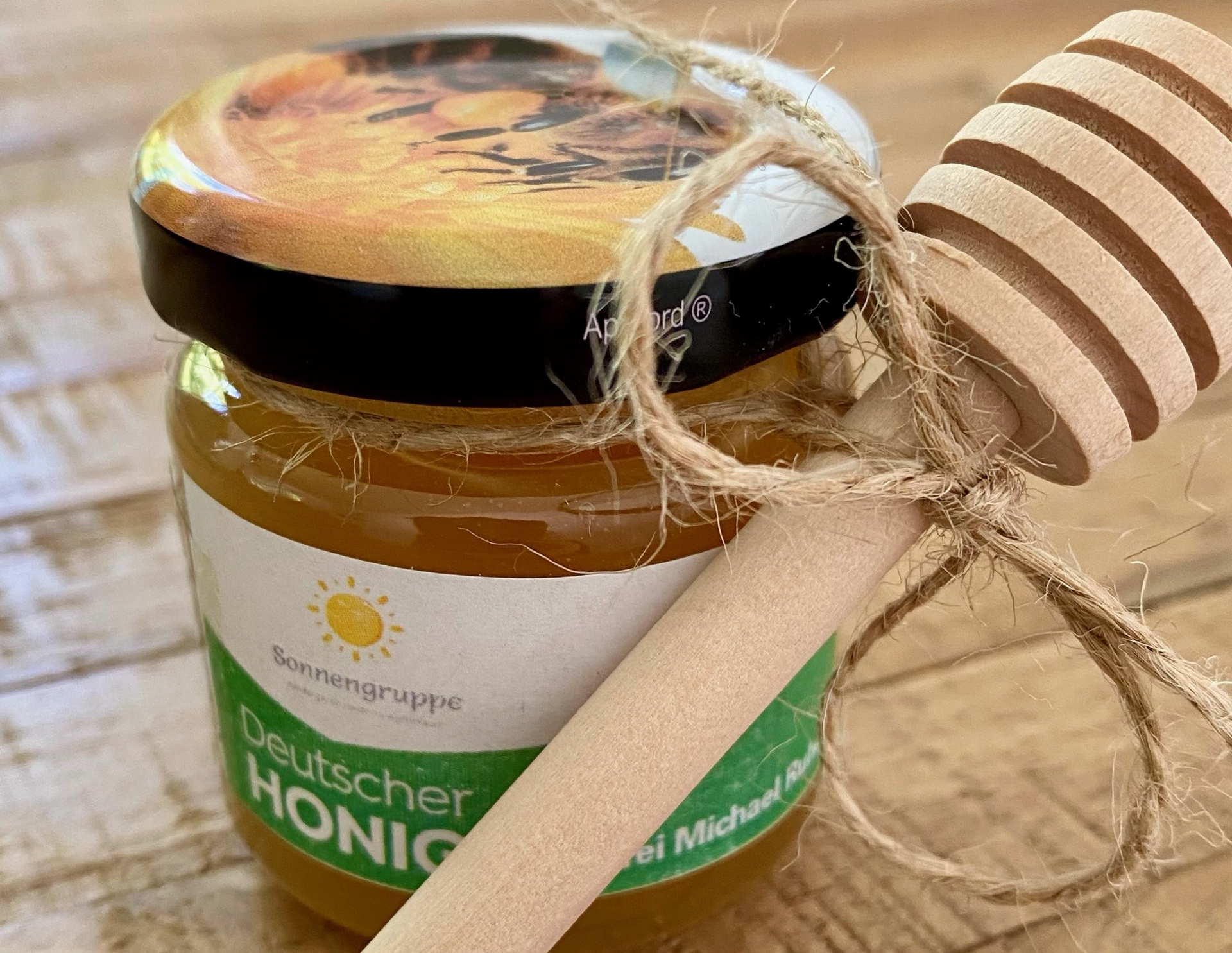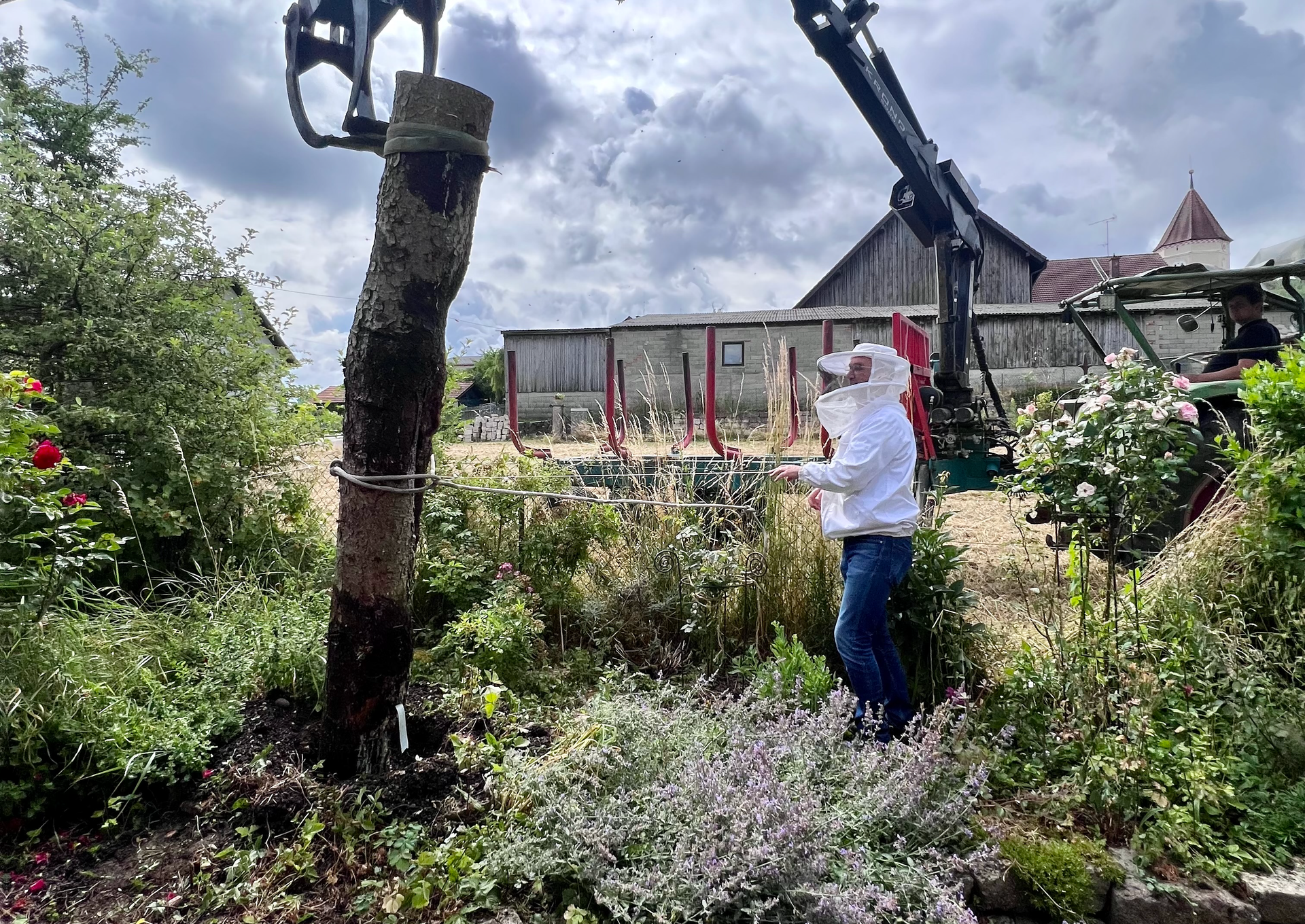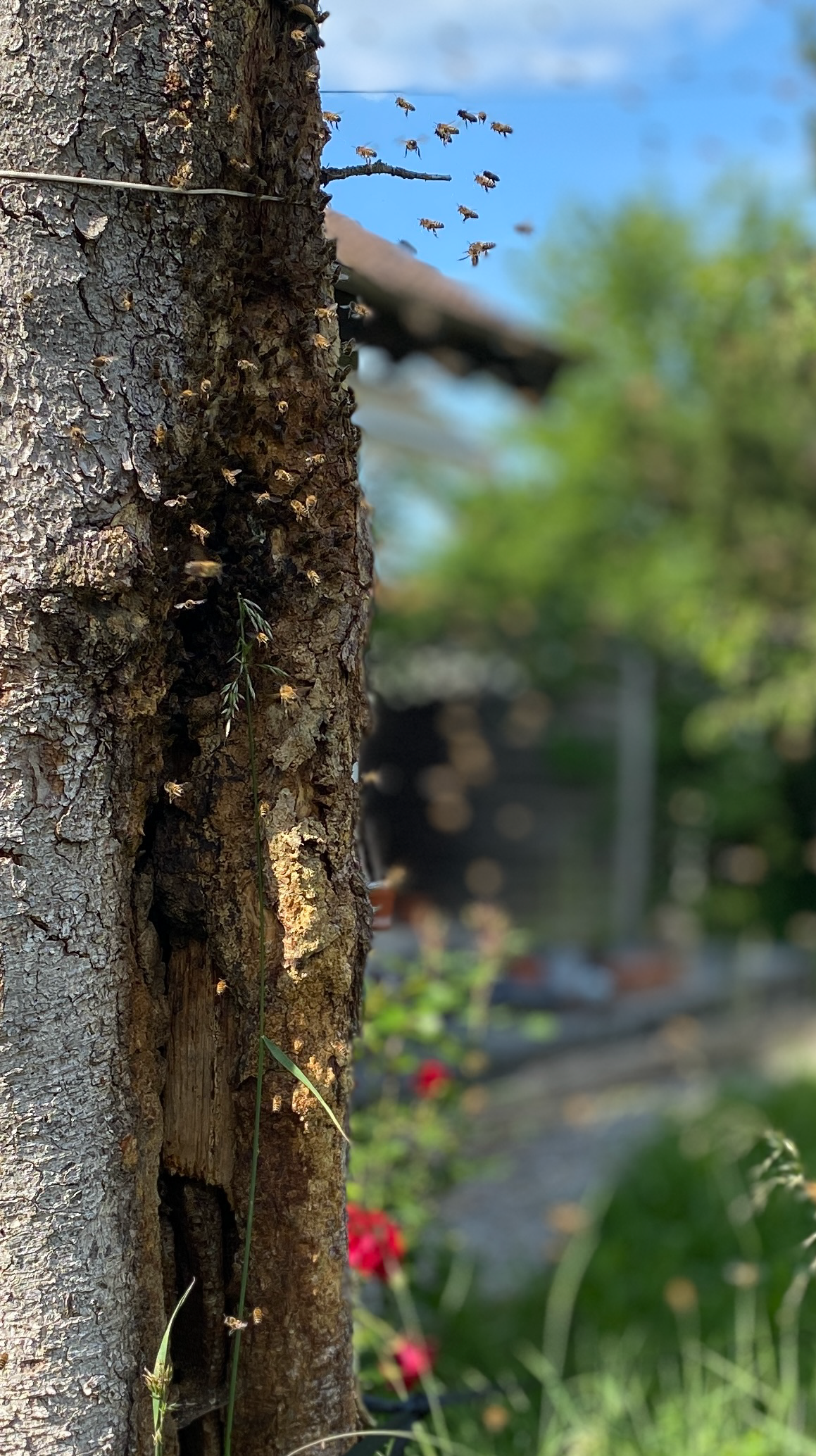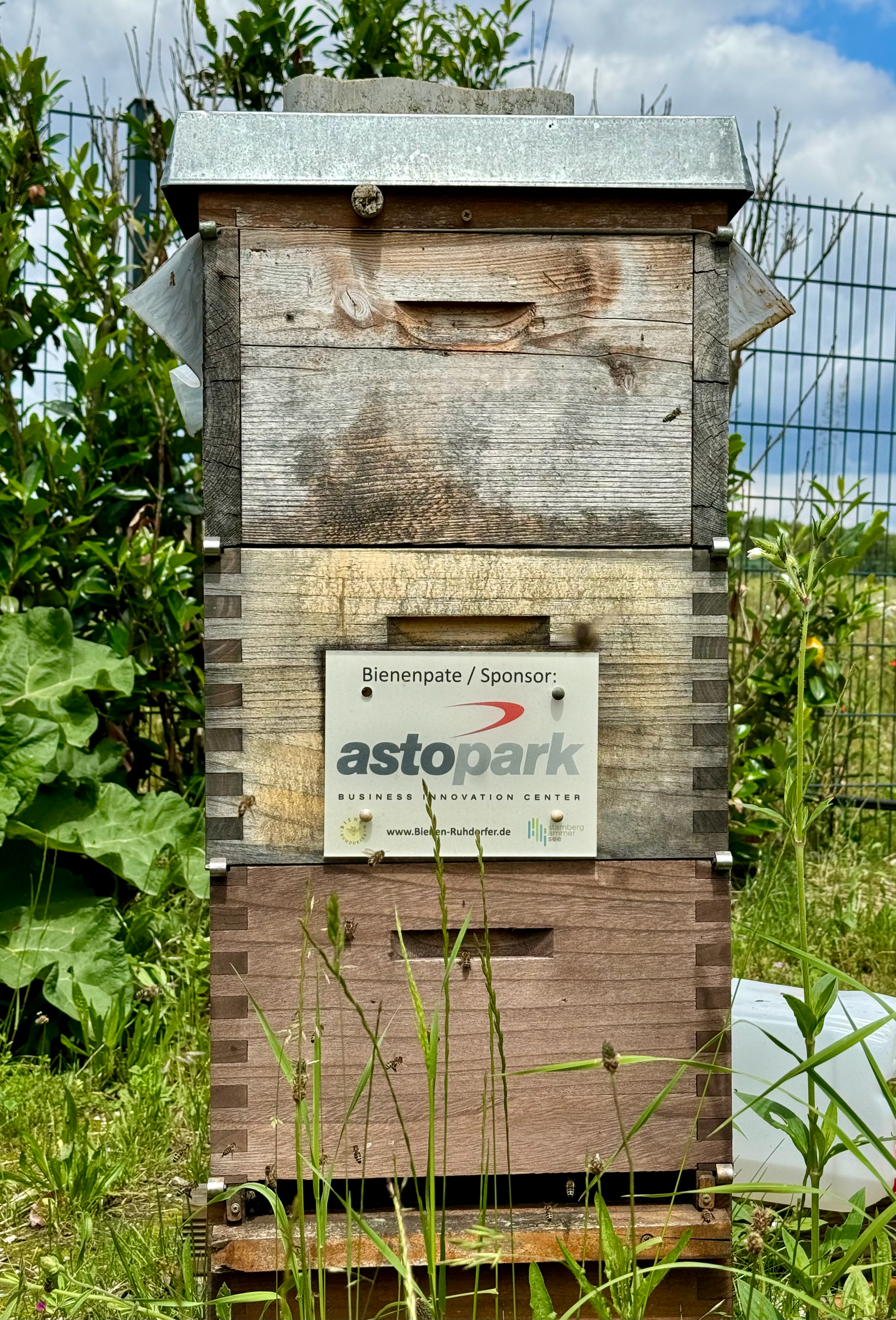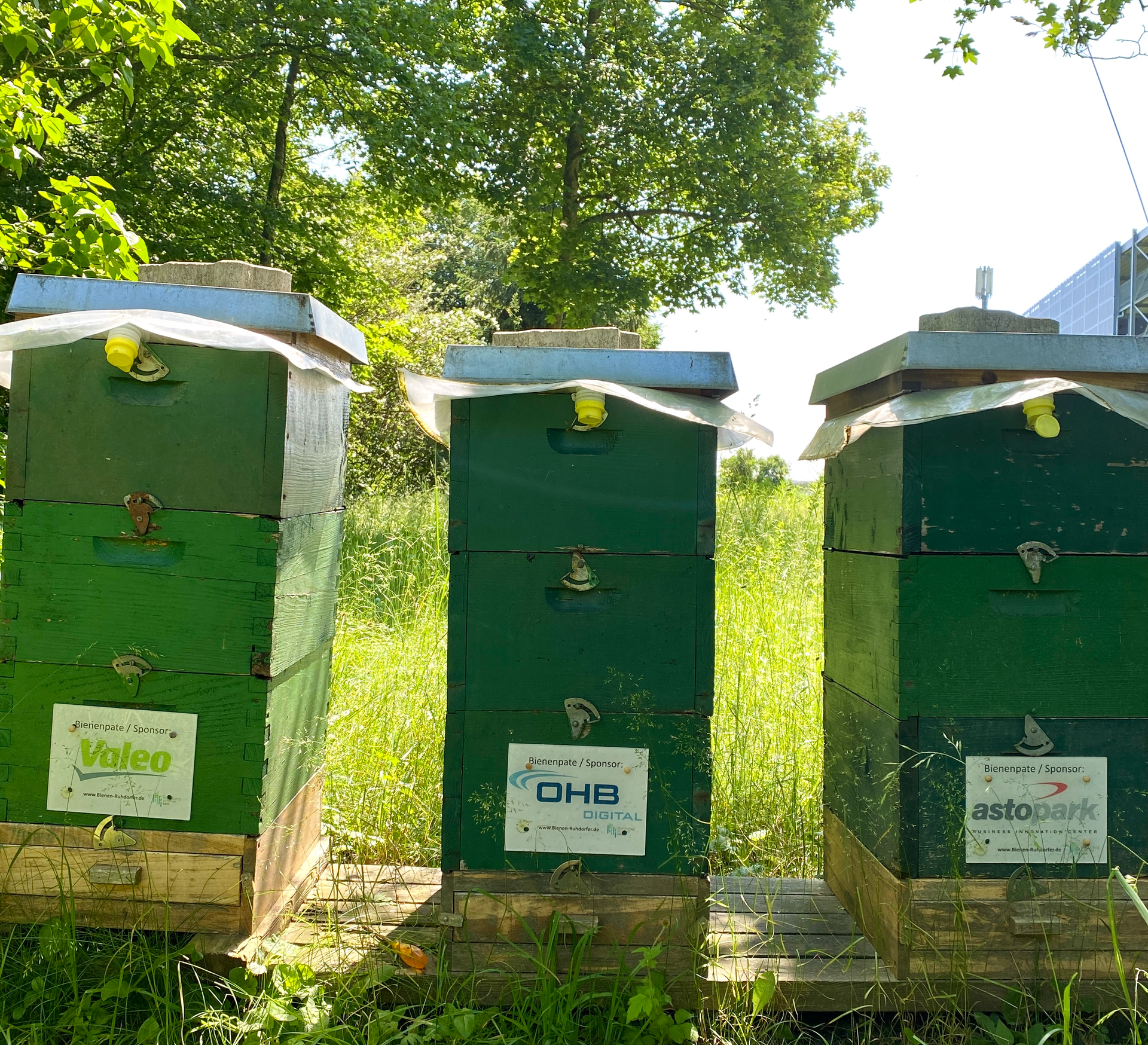June newsletter:
It's not just the bees that are swarming!
Dear bee friends,
The summer solstice marks the end of the swarming season for honey bees, but I was still able to capture a swarm in the garden of a family friend on June 22. If you ignore the fact that the bees have built a queen cell and the queen has laid an egg in it, it will only be a week before the swarm moves out. As soon as the queen cell is capped with the future queen, a large part of it moves out with the old queen and looks for a new home. As a beekeeper, I naturally try to avoid this, as many busy bees would otherwise be missing to collect honey.
The sun group from the kindergarten of one of my bee sponsors at OHBDigital has also been working intensively on the topic of bees. They were busy reading and making things, which got me excited too, and I gave each child a jar of honey as a reward.
Each bee in the swarm first fills its honey bladder before leaving, so that they survive the journey to their new home. However, I don't think it will be so easy for all the bees to find their way to the new home. After moving out, the swarm first settles down near the old hive to collect themselves. Then they continue in the direction that the experienced scouts have agreed on. On the way there, they often take another break in a garden, where they all gather around the fragrant queen on a branch. If they have not found a hollow tree, it is also possible that this branch was already the target and a new nest with honeycombs made of wax is being built here.
Last year I told you about the colony of bees in the felled tree, which I then placed in my garden. Unfortunately, this colony did not survive the winter. It was probably too small after the loss of the flying bees due to the felling. I was actually about to take the tree trunk down again when a swarm of bees actually moved into my garden at the beginning of June.
If you want to see more of the spectacle, you can watch my short video on LinkedIn.
Fortunately, all my bee colonies are still complete and not swarmed, so I can still harvest the summer honey from all the colonies. I'll be sure to report on this in the next newsletter.
The harvest of the spring blossom honey is now complete. Despite many rainy days, the bees have always made good use of the beautiful days and finally filled the honey chamber, even if the drying of the honey was not entirely successful.
After a promising start to the bee season, the April weather in May and the heavy rainfall in June once again put a damper on expectations for the honey harvest. But the increased groundwater level is of course good for nature and amphibians after the often too dry last few years.
Many thanks to all bee sponsors and partners for their support!
Stay healthy and confident!
Your beekeeper
Michael Ruhdorfer

